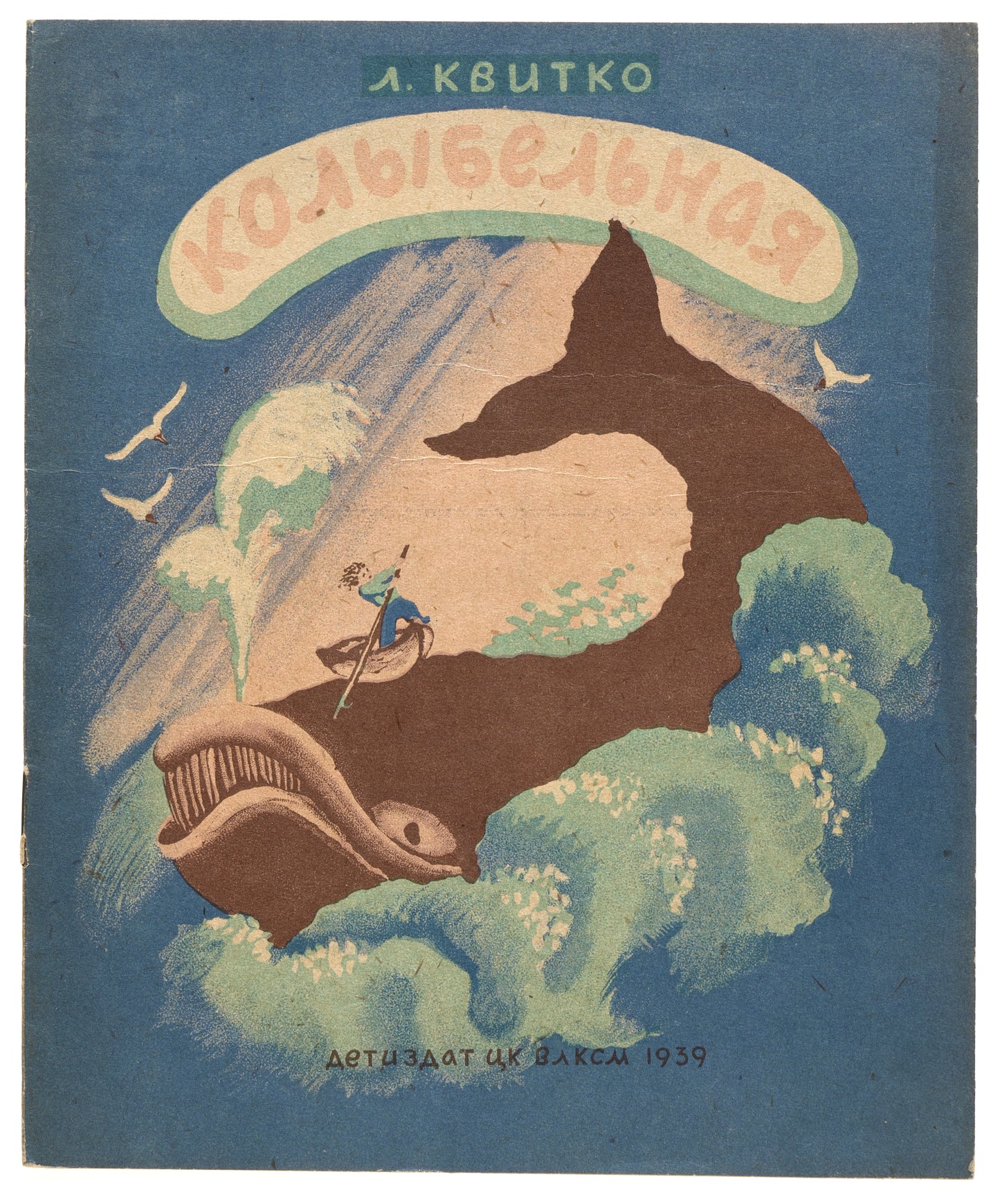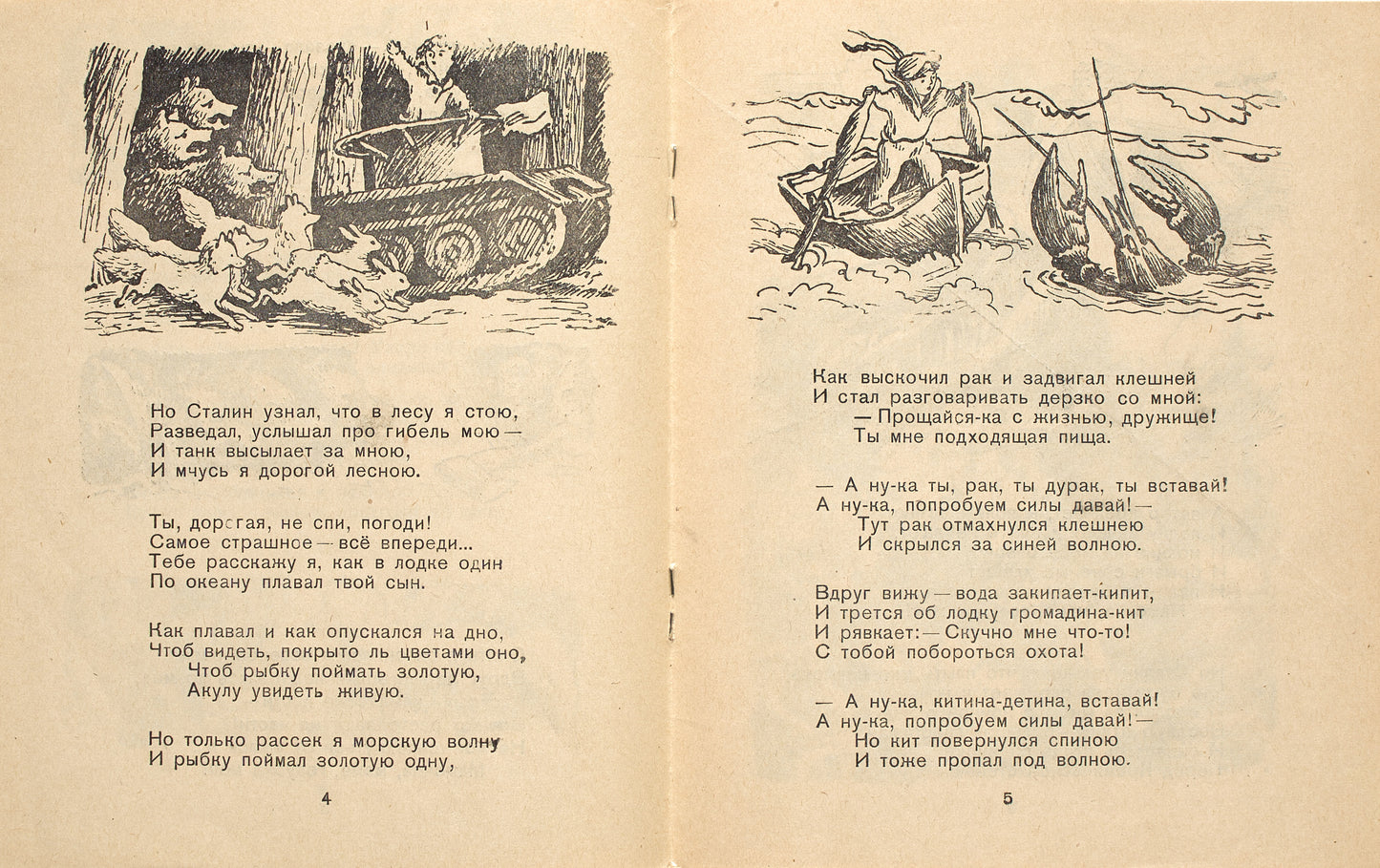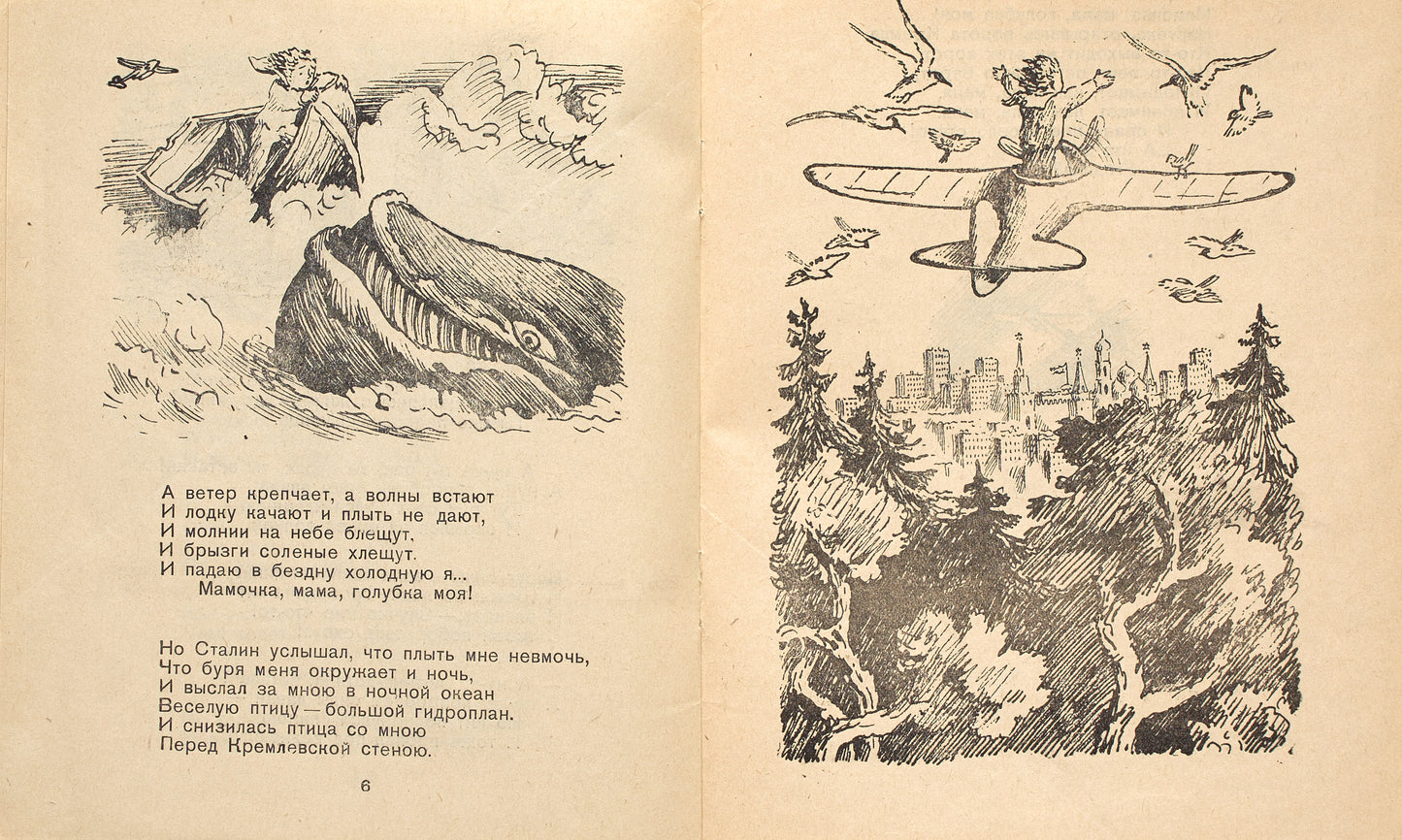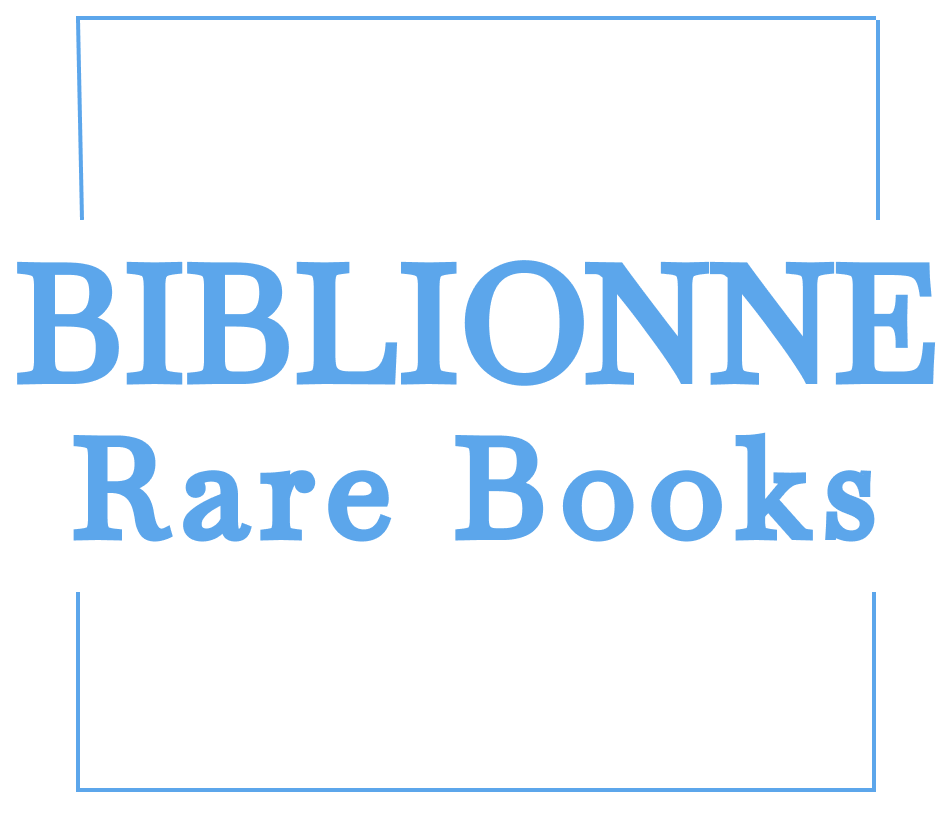Kvitko, Leib
Lullaby. The only edition with illustrations by Konashevich.
Lullaby. The only edition with illustrations by Konashevich.
Couldn't load pickup availability
Kvitko, L. [Lullaby]. Kolybel’naia.
Illustrations by V. Konashevich.
Moskva, Detizdat, 1939.
8vo, 8 pp., ill.
In original pictorial wrappers. Without title-page as issued.
In good condition, top margins cut to 0.5 cm without loss of text.
Leib Kvitko (1890-1952) was a Yiddish poet whose works were translated by prominent Soviet poets and illustrated by the beloved Russian children's artists. During World War II, Kvitko became a member of the Jewish Anti-Fascist Committee. In 1949, he was arrested in connection with the Committee. Along with Peretz Markish, David Hofstein, and Itzik Feffer, he was executed on August 12th, 1952, in an event known as the 'Night of the Murdered Poets'.
From 1949 onwards, following Kvitko's arrest, all his books were banned by Soviet censors, subject to confiscation and destruction. Only the largest public libraries with special collections, known as Spetskhran, retained one or two copies, while others had to destroy them.
Regarding the poem itself, in the 1930s, the cult of Stalin was supported by writers who glorified the leader, even in small forms like limericks and lullabies. 'Lullaby' is one of Kvitko's few politicized works, where a child finds himself in confrontation with nature—a rare theme in Kvitko's poetry. In this poem, a little boy ventures into a forest, and the powerful leader Stalin sends a tank and a seaplane to help him. The poem was written no later than January 1937 but was first published in Yiddish in 1938. It was subsequently published in Russian the following year in several collections and two separate editions, illustrated by Mendel Gorshman and Vladimir Konashevich.
Our copy is the only edition of 'Lullaby' with illustrations by Vladimir Konashevich (1888-1963). Unlike Gorshman's illustrations, Konashevich's illustrations reduce the pathos of the text through his distinctive style: Stalin's image does not appear, and the verses about the Kremlin as a symbol of power are accompanied by a delicate illustration of a panorama of Moscow, where the Kremlin towers with red stars are shown alongside the Ivan the Great Bell Tower and the domes of the old Kremlin cathedrals. The translator is not specified in this edition, but the poem was translated into Russian by Elena Blaginina.
We couldn't trace any copy of this edition via OCLC.






